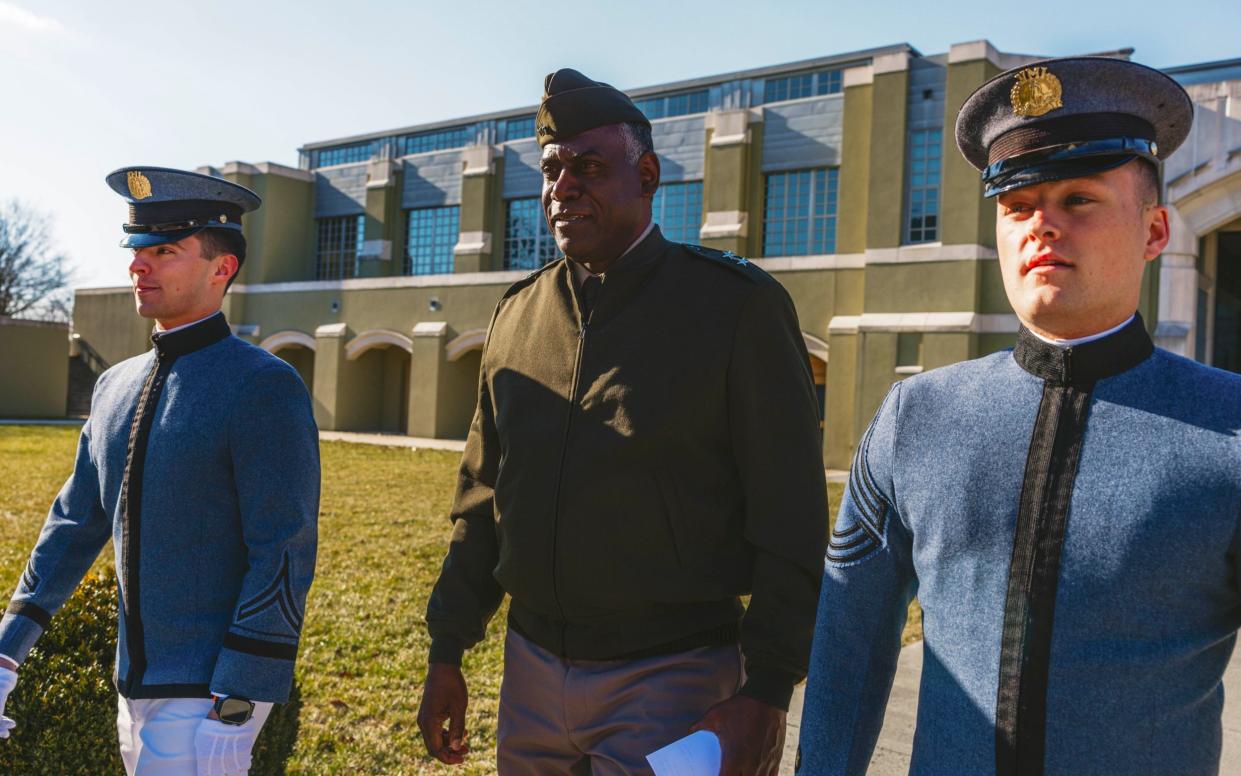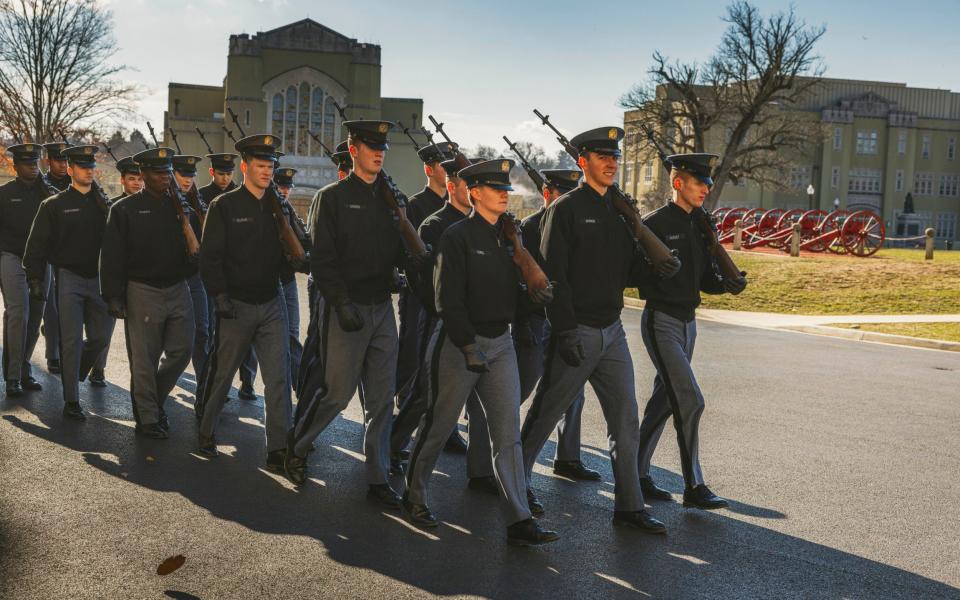US military school goes to war over first black leader’s ‘woke’ policies

One of the US’s oldest and most esteemed military colleges is entangled in a culture war with alumni over its push to make the institution more welcoming to women and ethnic minorities.
The Virginia Military Institute (VMI), whose most famous graduates include Gen George Marshall and Gen George Patton, has been under scrutiny since an independent 2021 report found it failed to address institutional racism and sexism.
Cedric Wins, a retired army general, was later appointed as the VMI’s superintendent, the institution’s first black leader in its 183-year history.
He vowed to take a “zero-tolerance” approach to racism and sexism and defended the decision to remove a statue of Stonewall Jackson, famed Confederate general and former VMI professor, amid fierce opposition.
He has also overseen reforms such as mandatory diversity, equity, and inclusion (DEI) training for administrators.
But the initiatives have prompted a fierce backlash from a group of powerful alumni, who have refuted the suggestion that the VMI is “inherently, or in any other way racist”.

They have formed a political action committee named the “Spirit of the VMI” and raised more than $273,000 to lobby politicians over the state’s latest culture war.
“Reject the woke assault on VMI, close ranks,” one of its websites states.
The opposition is being led by Matt Daniel, a former classmate of Mr Wins. Both graduated from the college in 1985.
Mr Daniel, 60, a white former US Marine, was initially supportive of his “brother rat”, as VMI classmates are known.
He wrote of Mr Wins’ appointment in an alumni magazine: “If there was ever a leader to take the helm and navigate VMI through such odd and dark shark-infested waters, it is Cedric Wins.”
But Mr Daniel and other VMI graduates are now at war with Mr Wins, 59, over the college’s future.
Since Mr Wins’ appointment, the institution has removed Confederate emblems from its campus and hired diversity officers and admissions counsellors to attract more ethnic minority and female students.
The group has taken particular umbrage with DEI, which it argued is “unnecessary, promotes racial division [and] encourages victimhood”.
Mocking cartoons posted
It has posted cartoons mocking Mr Wins’ initiatives. It published one showing a woman stuffed inside a bin, upside down, with her high heels hanging over the top and a “DEI” sign sticking out.
Mr Daniel, chairman of the Spirit of VMI, said the college’s focus should be on ensuring “equality of opportunity, which has been the keystone of the institute since its inception”.
Founded in 1839, the VMI was a key training ground for Confederate soldiers during the US Civil War, and did not admit black cadets until 1968, or women until 1997, when it was compelled to do so by a landmark Supreme Court ruling.
Its 1,500 students remain mostly white and male, with black students making up about 8 per cent of the cadets, and women accounting for 13.5 per cent.
A Washington Post report alleging rampant racism at the institution triggered a state-ordered investigation into racism and sexism at the school in 2020.
A probe by a law firm found “racial slurs and jokes are not uncommon” at the institution, and “contribute to an atmosphere of hostility toward minorities.”
The report noted that “VMI has no explicitly racist or sexist policies that it enforces” but the “facts reflect an overall racist and sexist culture”.
The findings were heavily criticised by some former alumni, who said while racist incidents occurred, the claims of “ongoing institutional racism” were “simply inaccurate”.
They noted that the share of cadets of colour nearly doubled from 1992 to 2020.
